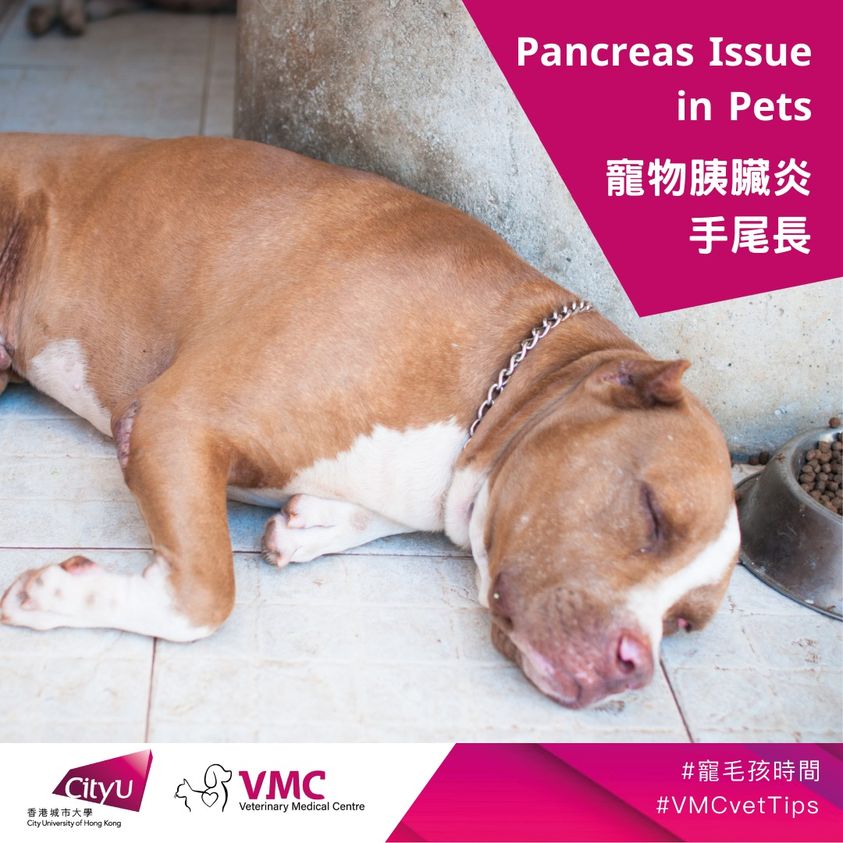
Pancreatitis (inflammation of the pancreas) in pets is potentially life-threatening. If left untreated pancreatitis may lead to severe organ damage and even death. As a result, you should contact your veterinarian right away if your dog is showing signs of the disease.
The pancreas is an organ near the stomach that is responsible for producing digestive enzymes that helps break down food product. When the organ is working normally, the enzymes become active only when they reach the small intestine. In a pet with pancreatitis, however, the enzymes activate when they’re released, inflaming and causing damage to the pancreas and its surrounding tissue and other organs. The enzymes can actually begin to digest the pancreas itself, which causes extreme pain to your pet.
What are the symptoms of Pancreatitis?
Pancreatitis can present as a sudden-onset (acute) illness or as a more long-term (chronic) illness.
A pet that has acute pancreatitis will have more serious clinical signs, such as:
- Severe lethargy
- Abdominal pain
- Persistent vomiting
- Severe dehydration
- Fever
- Collapse
A pet with chronic pancreatitis is typically not as sick. The clinical signs may include:
- Lethargy
- Hunched back
- Diarrhea
- Decreased appetite to not eating at all
- Abdominal pain and/or vomiting
What are the causes of Pancreatitis?
The cause of pancreatitis in pets is often (>90% of cases) unknown, however, there are some possible risk factors that may predispose pets to pancreatitis:
- Diet, particularly high fat diets, or accidental ingestion of human food high in fat
- Breed predisposition (e.g., Miniature Schnauzers, Cocker spaniels, and Yorkshire terriers)
- Severe blunt trauma to the pancreas
- Endocrine diseases such as diabetes mellitus, Cushing’s disease, hypothyroidism, etc.…
- High levels of triglycerides in the blood.
- A tumor in the pancreas can lead to inflammation in the adjacent pancreatic tissue
Treatment of Pancreatitis
Most pets with pancreatitis require hospitalization and in severe cases 24-hour intensive care and monitoring. Treatment consists of intravenous fluid therapy to rehydrate the body, treat shock, correct electrolyte imbalances, anti-vomiting medications (antiemetics), pain relief, and nutritional support.
In some cases, surgery may be required to remove cysts, abscesses, tumors, or dead tissue from the pancreas or to unblock a bile duct.
Unless the pet can’t stop vomiting, feeding is an important part of therapy because it maintains the lining of the gut and minimizes gut bacteria moving out of the intestines and into the rest of the body, which can cause sepsis. The pet must be fed a low-fat, highly digestible diet, such as a prescribed therapeutic food. If the pet won’t eat, then a short-term feeding tube is placed.
Keep in mind that your veterinarian will recommend a treatment plan that is specific to your pet’s condition.
Once the pet is released from the hospital, make sure you give all the medications as directed and carefully follow any dietary recommendations such as a bland, low-fat diet or prescribed therapeutic food. Continue to keep a close eye on your pet and contact your veterinarian right away if he or she becomes lethargic or stops eating after discharge.
Appointment/Enquiry:
3650 3000 (Mon-Sun: 9:00am – 7:00pm)
Address:
G-2/F, Trinity Towers, 339 Lai Chi Kok Road, Sham Shui Po
Online booking for revisit with primary care veterinarians or vaccination:
https://www.cityuvmc.com.hk/en/online-booking